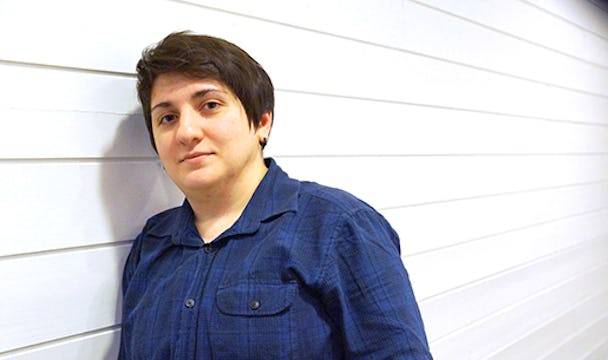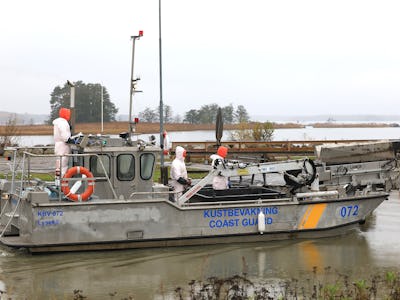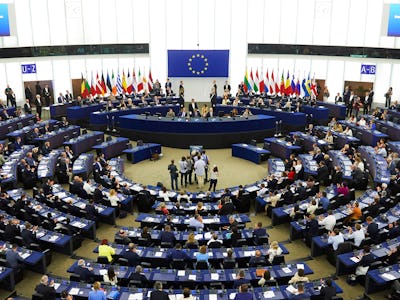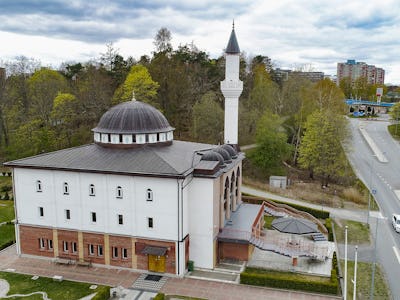Paperthin protection for LGBT activists
Stones rained in, smashing the windows of the bus. Despite the traumatic attack in Tblisi in 2013, Natia Gvianishvili, one of the most well-known LGBT activist in Georgia, says:

– Still, threats against me have been fewer than I expected when I ’came out’.
On paper, things look good. Reality is very different.
– I have the right to demonstrate for my rights, but the problem is that people want me dead.
Arbetet Global meets Natia Gvianishvili at a conference centre in Nacka Strand on a grey winter day in Stockholm.
She is in Sweden along with 40 other women to participate in a gathering of organizations from the former Soviet republics that are supported by the Swedish organisation the Kvinna till Kvinna (Foundation Woman to Woman).
At the age of 22, she took the decision to be open about her sexuality.
It was a tough process, perhaps even more so for her parents who stood by her. She chose to be open and vocal in the public sphere rather than keep it private, she says :
– There are few that will speak openly.
Now at 30, she leads the Women’s Initiatives Supporting Group (WISG) in Tbilisi, the Georgian capital. The group supports lesbians and lesbian rights.
Resistance and criticism both before and after was wide-spread, in particular from the Orthodox Church that perceived LGBT rights as an attack on traditional family values.
The violence that erupted on the 17th of May 2013 was proof of the intensity of sentiment.
100 members of LGBT activist organisations had gathered in central Tblisi. Although the police were present, a counter-protest drew a massive attendence of 10000.
– We were forced to flee into some buses. The police were unable to hold them back.
The aggressive mob targeted the buses throwing large rocks. The windows were smashed.
Some activists were struck on their heads, causing concussions. Grabbing hands stretched through broken window panes, trying to pull out the activists. They had gathered to demonstrate for the rights of homosexuals, bisexuals and transgenders.
– We were lucky to survive.
Anti-discrimination legislation was passed in Georgia in 2014 that includes protected freedoms in sexual orientation and gender identity. The new laws seemed to support the LGBT community, but Nadia Gvianishvili comments:
– Politicians change laws to appease the European Union, but they do not do much to assure that those laws are followed.
Yet despite those ugly scenes, Natia Gvianishvili had expected worse.
When ’coming out’, she had expected a much more adverse reaction from a strongly religious Georgian society.
– I do get nasty messages on Facebook, but before I was an open activist and spoke about my sexuality, I imagined it would be much worse. I haven’t recevied death threats, so in a way that is positive. I dared to take that step and it wasn’t as bad as I feared.








